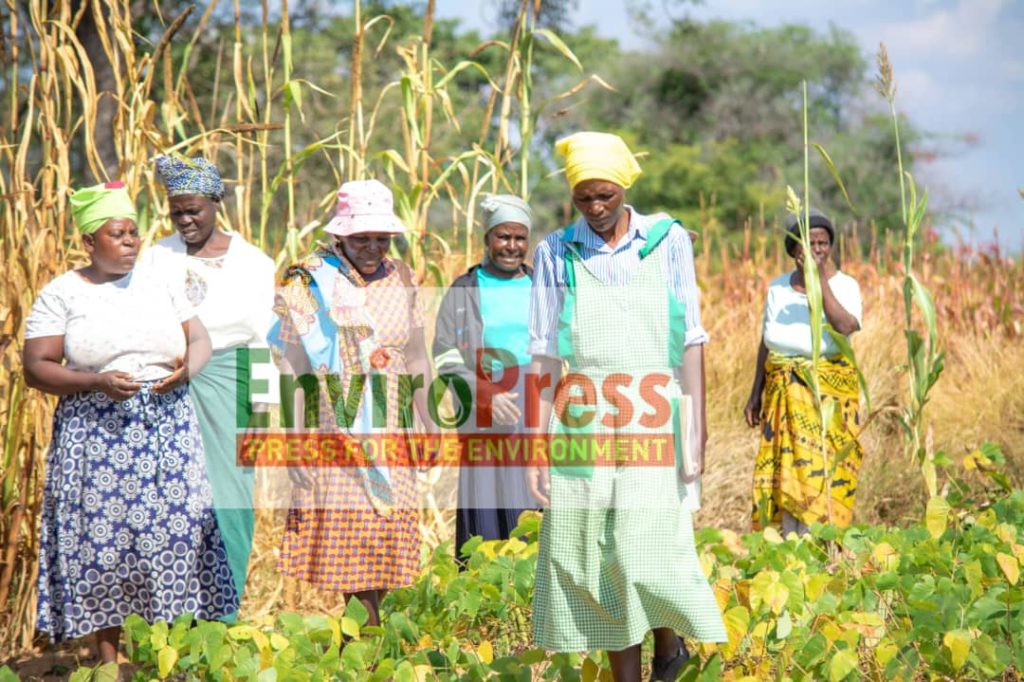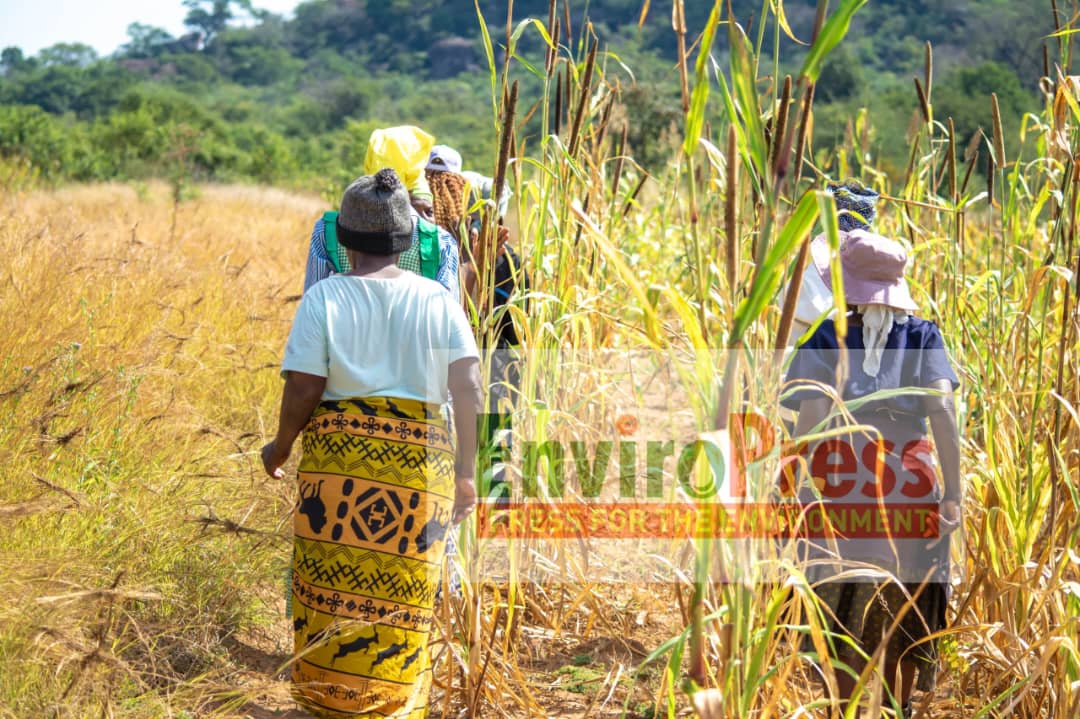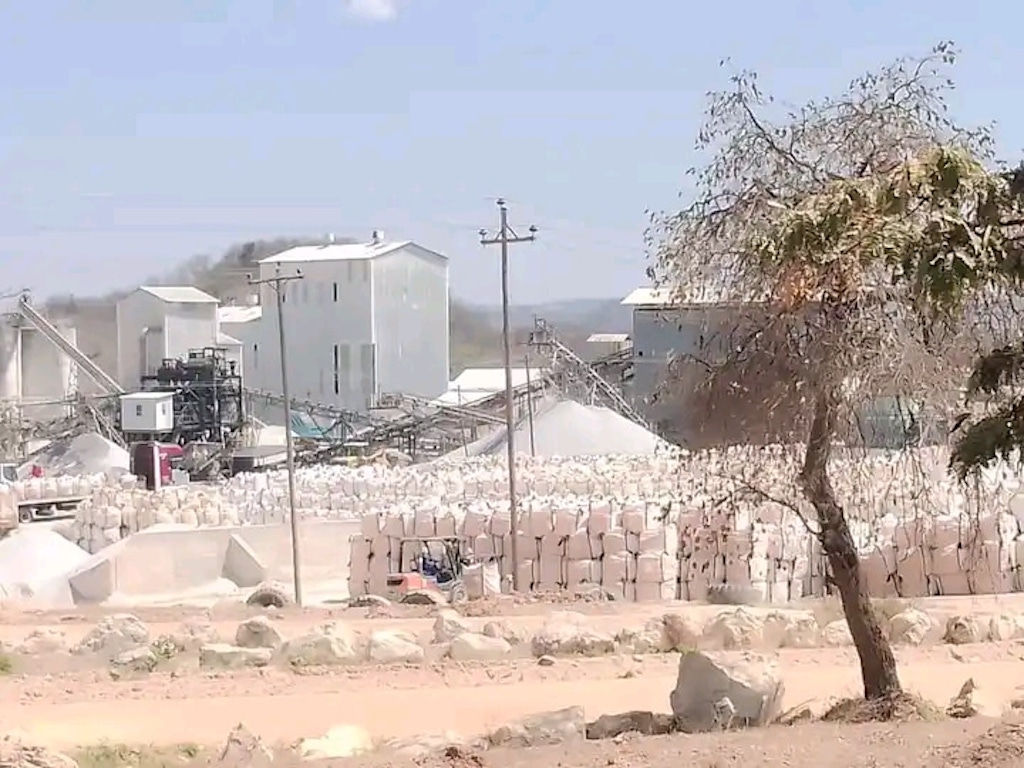Rutendo Chirume
As rural communities in Zimbabwe grapple with food insecurity, soil degradation, and the intensifying impacts of climate change, Farmer Field Schools (FFS) are offering practical, nature-based solutions and a path to resilience.
FFS are a participatory, community-based agricultural training approach where farmers engage in practical learning in their own fields.
In districts like Zaka, FFS are equipping smallholder farmers with hands-on skills that promote sustainable land use.
Under the Drylands Sustainable Landscapes Impact Programme (DSLIP), 14 Farmer Field Schools have been established in Ward 17 and Ward 34.
The programme is being implemented by a consortium led by the Environmental Management Agency. The other partners are Community Technology Development Trust, World Vision, Zimparks and Forestry Commission of Zimbabwe with funding from the Global Environment Facility’s 7th Cycle (GEF-7).
Zaka District Agritex Officer Kennedy Pedzisai said the programme, which targets over 700 people in the two wards, has already shown signs of improved yields.
“There are 14 FFS in Zaka Central, each with an average of 25 members. Through FFS, practices are demonstrated on a small scale, and farmers then upscale what works on their own plots. Many have expanded areas under traditional grains, and crop conditions are commendable. Farmers have adopted the watershed approach, which considers conservation beyond the plots including gully reclamation and the removal of invasive species like lantana camara. This has made the surrounding land more productive,” said Pedzisai.
For beneficiaries like Ishmael Kuseka from Tinofirei Village in Ward 17, the impact has been life-changing.
“Last year we harvested nothing because of the drought. I had never surpassed two tonnes but this season, I expect at least five tonnes or more. Apart from knowledge gained, we were given machines that make our work faster and easier. Food security is no longer a worry and I don’t need to do peace jobs anymore. I have enough to feed my family and have surplus to sell,” said Kuseka.
Edzai Mazhara, a participant from Vanyoro Village, highlighted said the programme had helped improve social conditions.
“We were introduced to such farming methods as infiltration pits to harvest moisture, and there is food at home. I don’t have to wait for my husband for money since I can earn through FFS. We also save money using traditional methods like preserving seed and applying natural manure,” said Mazhara.
At the national level, the initiative spans 44 wards across eight districts namely Chivi, Masvingo, Bikita, Zaka, Shurugwi, Chipinge, Chimanimani, and Buhera.

GEF-7 National Project Coordinator Precious Magwaza told EnviroPress the programme supported 610 Farmer Field Schools, each comprising 25 to 30 members.
“The goal is to build ecosystem resilience while improving community livelihoods. The FFS model includes training on sustainable land and forest management, with activities such as soil and water conservation, catchment management, nursery establishment, tree planting, and forest protection,” said Magwaza noting that sustainability was central to the project’s design.
“We work closely with existing government departments like Agritex, EMA, RDCs, Forestry Commission, and the Ministry of Women Affairs, to embed these programmes within local structures. The programme also focuses on income generation, linking groups to savings schemes like mikando. This enhances both economic resilience and social cohesion,” she said.
Methods like infiltration pits, agroforestry, mulching, crop rotation have been taught through FFS.








